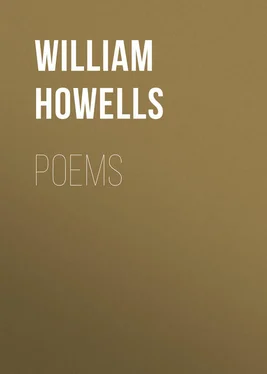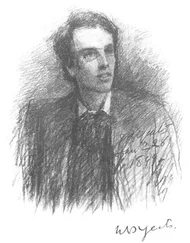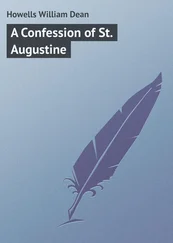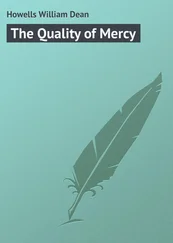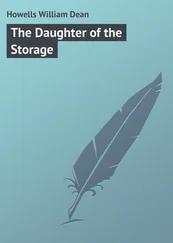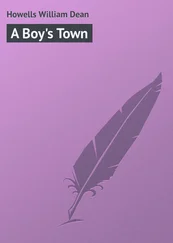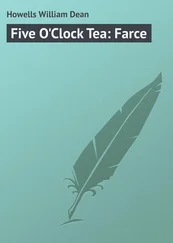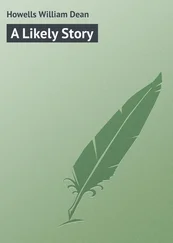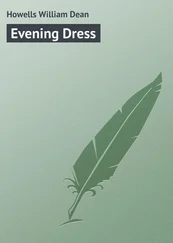William Howells - Poems
Здесь есть возможность читать онлайн «William Howells - Poems» — ознакомительный отрывок электронной книги совершенно бесплатно, а после прочтения отрывка купить полную версию. В некоторых случаях можно слушать аудио, скачать через торрент в формате fb2 и присутствует краткое содержание. Жанр: Поэзия, foreign_prose, foreign_poetry, на английском языке. Описание произведения, (предисловие) а так же отзывы посетителей доступны на портале библиотеки ЛибКат.
- Название:Poems
- Автор:
- Жанр:
- Год:неизвестен
- ISBN:нет данных
- Рейтинг книги:3 / 5. Голосов: 1
-
Избранное:Добавить в избранное
- Отзывы:
-
Ваша оценка:
- 60
- 1
- 2
- 3
- 4
- 5
Poems: краткое содержание, описание и аннотация
Предлагаем к чтению аннотацию, описание, краткое содержание или предисловие (зависит от того, что написал сам автор книги «Poems»). Если вы не нашли необходимую информацию о книге — напишите в комментариях, мы постараемся отыскать её.
Poems — читать онлайн ознакомительный отрывок
Ниже представлен текст книги, разбитый по страницам. Система сохранения места последней прочитанной страницы, позволяет с удобством читать онлайн бесплатно книгу «Poems», без необходимости каждый раз заново искать на чём Вы остановились. Поставьте закладку, и сможете в любой момент перейти на страницу, на которой закончили чтение.
Интервал:
Закладка:
Will they come again at nightfall,
With God’s breath in their song?
Noon is fierce with the heats of summer,
And summer days are long!
O my Life, with thy upward liftings,
Thy downward-striking roots,
Ripening out of thy tender blossoms
But hard and bitter fruits!–
In thy boughs there is no shelter
For the birds to seek again.
The desolate nest is broken
And torn with storms and rain!
LOUIS LEBEAU’S CONVERSION
Yesterday, while I moved with the languid crowd on the Riva,
Musing with idle eyes on the wide lagoons and the islands,
And on the dim-seen seaward glimmering sails in the distance,
Where the azure haze, like a vision of Indian-Summer,
Haunted the dreamy sky of the soft Venetian December,–
While I moved unwilled in the mellow warmth of the weather,
Breathing air that was full of Old World sadness and beauty
Into my thought came this story of free, wild life in Ohio,
When the land was new, and yet by the Beautiful River
Dwelt the pioneers and Indian hunters and boatmen.
Pealed from the campanili, responding from island to island,
Bells of that ancient faith whose incense and solemn devotions
Rise from a hundred shrines in the broken heart of the city;
But in my revery heard I only the passionate voices
Of the people that sang in the virgin heart of the forest.
Autumn was in the land, and the trees were golden and crimson,
And from the luminous boughs of the over-elms and the maples
Tender and beautiful fell the light in the worshippers’ faces,
Softer than lights that stream through the saints on the windows of churches,
While the balsamy breath of the hemlocks and pines by the river
Stole on the winds through the woodland aisles like the breath of a censer.
Loud the people sang old camp-meeting anthems that quaver
Quaintly yet from lips forgetful of lips that have kissed them;
Loud they sang the songs of the Sacrifice and Atonement,
And of the end of the world, and the infinite terrors of Judgment:–
Songs of ineffable sorrow, and wailing, compassionate warning
Unto the generations that hardened their hearts to their Savior;
Songs of exultant rapture for them that confessed him and followed,
Bearing his burden and yoke, enduring and entering with him
Into the rest of his saints, and the endless reward of the blessed.
Loud the people sang; but through the sound of their singing
Broke inarticulate cries and moans and sobs from the mourners,
As the glory of God, that smote the apostle of Tarsus,
Smote them and strewed them to earth like leaves in the breath of the whirlwind.
Hushed at last was the sound of the lamentation and singing;
But from the distant hill the throbbing drum of the pheasant
Shook with its heavy pulses the depths of the listening silence,
When from his place arose a white-haired exhorter, and faltered:
“Brethren and sisters in Jesus! the Lord hath heard our petitions,
So that the hearts of his servants are awed and melted within them,–
Even the hearts of the wicked are touched by his infinite mercy.
All my days in this vale of tears the Lord hath been with me,
He hath been good to me, he hath granted me trials and patience;
But this hour hath crowned my knowledge of him and his goodness.
Truly, but that it is well this day for me to be with you,
Now might I say to the Lord,–‘I know thee, my God, in all fulness;
Now let thy servant depart in peace to the rest thou hast promised!’”
Faltered and ceased. And now the wild and jubilant music
Of the singing burst from the solemn profound of the silence,
Surged in triumph, and fell, and ebbed again into silence.
Then from the group of the preachers arose the greatest among them,–
He whose days were given in youth to the praise of the Savior,
He whose lips seemed touched, like the prophet’s of old, from the altar,
So that his words were flame, and burned to the hearts of his hearers,
Quickening the dead among them, reviving the cold and the doubting.
There he charged them pray, and rest not from prayer while a sinner
In the sound of their voices denied the Friend of the sinner:
“Pray till the night shall fall,–till the stars are faint in the morning,–
Yea, till the sun himself be faint in that glory and brightness,
Faint in the light which shall dawn in mercy for penitent sinners.”
Kneeling, he led them in prayer; and the quick and sobbing responses
Spake how their souls were moved with the might and the grace of the Spirit.
Then while the converts recounted how God had chastened and saved them,–
Children, whose golden locks yet shone with the lingering effulgence
Of the touches of Him who blessed little children forever;
Old men, whose yearning eyes were dimmed with the far-streaming brightness
Seen through the opening gates in the heart of the heavenly city,–
Stealthily through the harking woods the lengthening shadows
Chased the wild things to their nests, and the twilight died into darkness.
Now the four great pyres that were placed there to light the encampment,
High on platforms raised above the people, were kindled.
Flaming aloof, as it were the pillar by night in the Desert
Fell their crimson light on the lifted orbs of the preachers,
Fell on the withered brows of the old men, and Israel’s mothers,
Fell on the bloom of youth, and the earnest devotion of manhood,
Fell on the anguish and hope in the tearful eyes of the mourners.
Flaming aloof, it stirred the sleep of the luminous maples
With warm summer-dreams, and faint, luxurious languor.
Near the four great pyres the people closed in a circle,
In their midst the mourners, and, praying with them, the exhorters,
And on the skirts of the circle the unrepentant and scorners,–
Ever fewer and sadder, and drawn to the place of the mourners,
One after one, by the prayers and tears of the brethren and sisters,
And by the Spirit of God, that was mightily striving within them,
Till at the last alone stood Louis Lebeau, unconverted.
Louis Lebeau, the boatman, the trapper, the hunter, the fighter,
From the unlucky French of Gallipolis he descended,
Heir to Old World want and New World love of adventure.
Vague was the life he led, and vague and grotesque were the rumors
Through which he loomed on the people,–the hero of mythical hearsay,
Quick of hand and of heart, impatient, generous, Western,
Taking the thought of the young in secret love and in envy.
Not less the elders shook their heads and held him for outcast,
Reprobate, roving, ungodly, infidel, worse than a Papist,
With his whispered fame of lawless exploits at St. Louis,
Wild affrays and loves with the half-breeds out on the Osage,
Brawls at New Orleans, and all the towns on the rivers,
All the godless towns of the many-ruffianed rivers.
Only she who loved him the best of all, in her loving
Knew him the best of all, and other than that of the rumors.
Daily she prayed for him, with conscious and tender effusion,
That the Lord would convert him. But when her father forbade him
Unto her thought, she denied him, and likewise held him for outcast,
Turned her eyes when they met, and would not speak, though her heart broke.
Bitter and brief his logic that reasoned from wrong unto error:
“This is their praying and singing,” he said, “that makes you reject me,–
You that were kind to me once. But I think my fathers’ religion,
With a light heart in the breast and a friendly priest to absolve one,
Better than all these conversions that only bewilder and vex me,
And that have made men so hard and women fickle and cruel.
Well, then, pray for my soul, since you would not have spoken to save me,–
Yes; for I go from these saints to my brethren and sisters, the sinners.”
Spoke and went, while her faint lips fashioned unuttered entreaties,–
Went, and came again in a year at the time of the meeting,
Haggard and wan of face, and wasted with passion and sorrow.
Dead in his eyes was the careless smile of old, and its phantom
Haunted his lips in a sneer of restless, incredulous mocking.
Day by day he came to the outer skirts of the circle,
Dwelling on her, where she knelt by the white-haired exhorter, her father,
With his hollow looks, and never moved from his silence.
Интервал:
Закладка:
Похожие книги на «Poems»
Представляем Вашему вниманию похожие книги на «Poems» списком для выбора. Мы отобрали схожую по названию и смыслу литературу в надежде предоставить читателям больше вариантов отыскать новые, интересные, ещё непрочитанные произведения.
Обсуждение, отзывы о книге «Poems» и просто собственные мнения читателей. Оставьте ваши комментарии, напишите, что Вы думаете о произведении, его смысле или главных героях. Укажите что конкретно понравилось, а что нет, и почему Вы так считаете.
